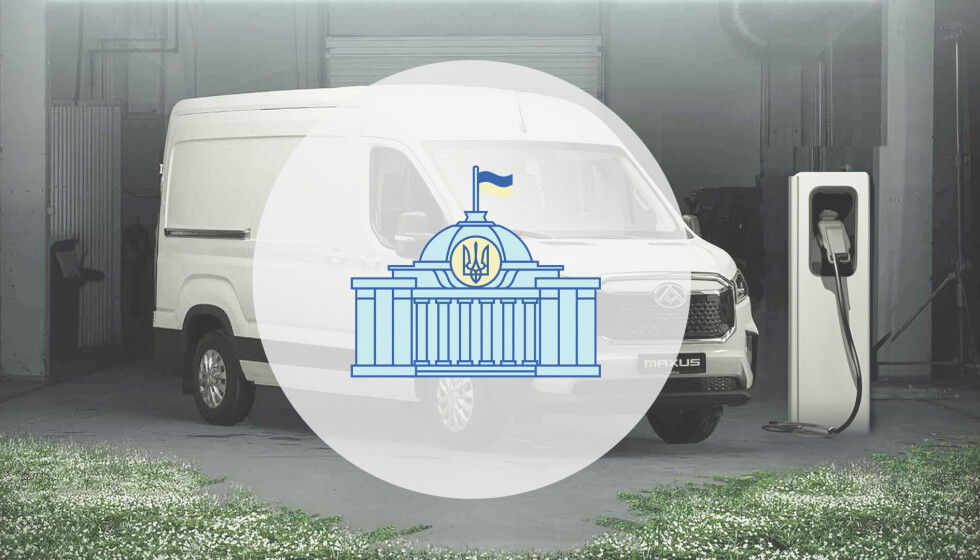
Customs clearance: the Verkhovna Rada introduced benefits for some categories of motor vehicles
On January 16, the parliamentarians adopted draft law No. 10321-1, the task of which is to bring a number of UCT codes of the ZED into compliance with the requirements of the previously approved Law (No. 2697), which should ultimately eliminate several complications (actually, impossibility) of customs clearance of certain goods, among which are vehicles. It is worth noting that the mentioned project has not yet entered into force, it is being prepared for the signature of the President, and then, according to its text, it will receive the status of law from the 1st of the month following its official publication. What will change for the market after this?
Electric trucks — without VAT
Until January 1, 2026, fully electric trucks will be exempt from paying VAT. Now, due to a legal conflict, such a benefit was only for passenger electric cars, and paradoxical situations arose when, for example, Renault Kangoo ZE in the passenger version cleared customs at "zero" rates (only with the payment of a small excise duty), and a similar car, but without a rear row of seats and marked "cargo" in the technical passport, was subject to VAT.
This paradox was repeatedly mentioned by the experts of the Institute of Car Market Research: when the state has already adopted a course for the comprehensive electrification of the car fleet, and there are even laws that contain bans on the operation of certain diesel cars from a certain time, charging VAT on electric trucks seemed clearly an unnecessary norm.
What will this change for the market?
Most noticeably, the new norm will be able to affect the LCV segment, because currently the practical offer, albeit quite narrow, is only in it. For the needs of small businesses, courier services, and in general, the so-called "last mile" delivery, electric vans such as the currently available used Renault Kangoo and Nissan eNV200 are the best — they are economical and do not pollute the air.
Recently, a rather interesting offer of new Maxus electric trucks, manufactured in China, appeared. Among the models officially presented in Ukraine are chassis, cargo "beads", small on-board cars and pickup trucks. These are practical cars, with fast charging ports and a range of more than 300 km (depending on the version), designed "from the ground up" exactly as electric cars, have good equipment and prices that are not higher (and sometimes lower) than cars of a similar class with DVZ Plus, they are guaranteed, and now these cars will become more affordable for Ukrainian buyers, because they will not have to pay VAT, which was a fifth of their cost.
As for other electric trucks with a larger load capacity, it is too early to talk about them, since this segment has not yet gone beyond the scope of test trials in the world. So it is likely that we will see dump trucks or large "trucks" on the roads when suitable means of energy storage are invented for them, cheaper and smaller/lighter than modern traction batteries.
"Gas" tractors — without VAT
By the same law, until 2026, new tractors for semi-trailers that use gas (compressed or liquefied methane or biogas) as fuel and are classified with the UCT code ZED 8701 29 00 will be exempted from VAT.
While the fleet of such cars is insignificant, as well as the offer with them, most likely this norm is set for the future, or for our market (if there is a corresponding demand from customers), individual manufacturers will create an offer with "gas" tractors.
Retro car is also without VAT
The list of cultural values, which are exempt from customs payments, has been clarified and expanded. Thus, the import of retro cars over 50 years old will now be exempt from customs duty, excise duty and (in addition) VAT.
However, the matter will not go further than that — it will not be possible to register a retro-car as a vehicle, so it is not yet possible to drive it on public roads either. For this, some more changes in the legislation are needed, the need for which has also been repeatedly emphasized by IDA experts.
Procedure with codes for hybrid trucks
By the same law, the excise tax rates for hybrid trucks were brought into line, according to the current (updated) codes of the UCT ZED. In practice, this will make it possible to move away from the use of transitional tables, accordingly, controversial questions regarding the classification of individual types of TK that may have arisen until now will disappear.
Subscribe to the Telegram channel of the Auto Market Research Institute to be the first to receive information without advertising or spam.


